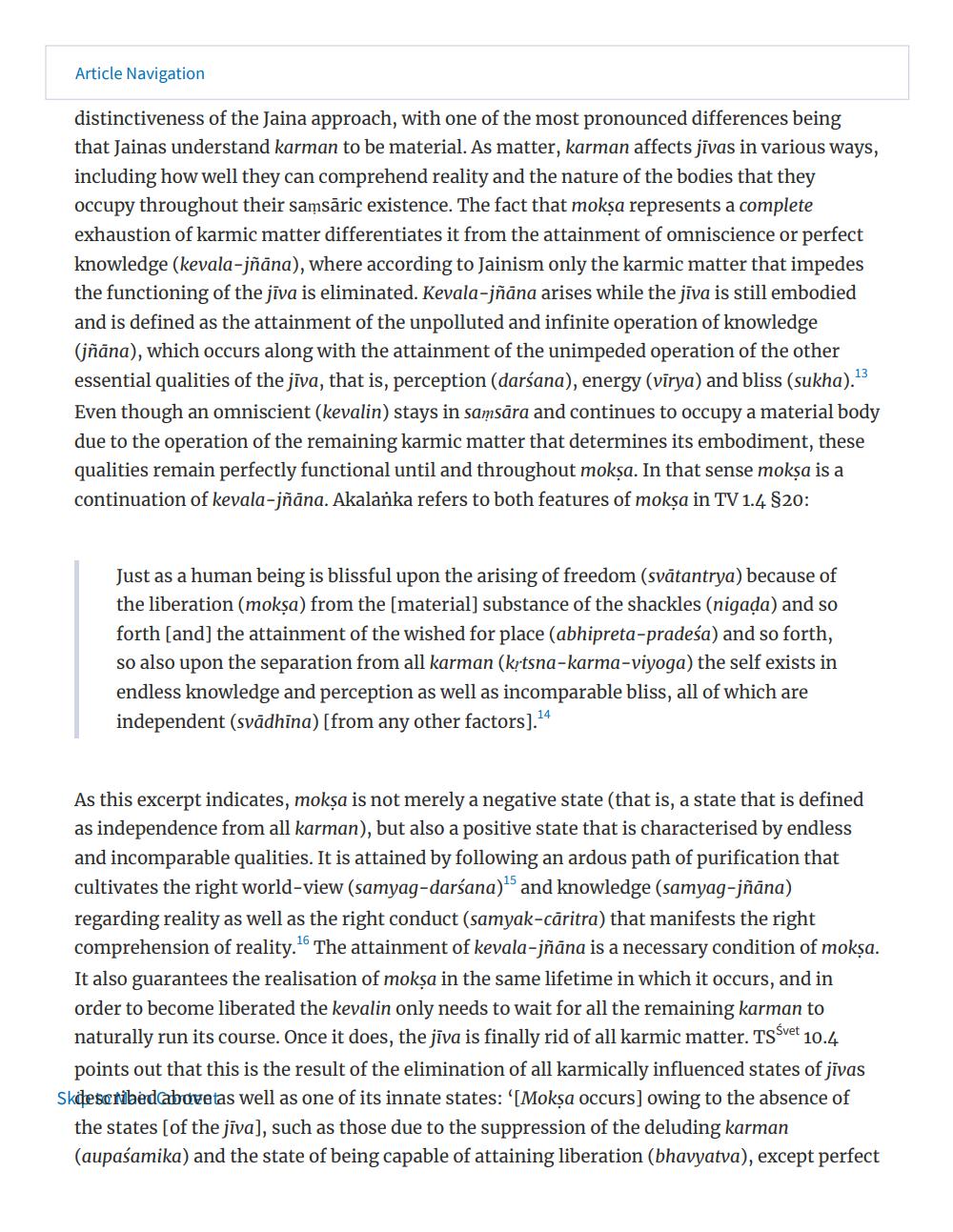Book Title: Jaina Philosophers On Nature Of Liberation Author(s): Publisher: Unknown View full book textPage 3
________________ Article Navigation distinctiveness of the Jaina approach, with one of the most pronounced differences being that Jainas understand karman to be material. As matter, karman affects jīvas in various ways, including how well they can comprehend reality and the nature of the bodies that they occupy throughout their samsaric existence. The fact that moksa represents a complete exhaustion of karmic matter differentiates it from the attainment of omniscience or perfect knowledge (kevala-jñāna), where according to Jainism only the karmic matter that impedes the functioning of the jīva is eliminated. Kevala-jñāna arises while the jiva is still embodied and is defined as the attainment of the unpolluted and infinite operation of knowledge (jñāna), which occurs along with the attainment of the unimpeded operation of the other essential qualities of the jiva, that is, perception (darśana), energy (vīrya) and bliss (sukha)." Even though an omniscient (kevalin) stays in samsāra and continues to occupy a material body due to the operation of the remaining karmic matter that determines its embodiment, these qualities remain perfectly functional until and throughout mokşa. In that sense moksa is a continuation of kevala-jñāna. Akalanka refers to both features of mokṣa in TV 1.4 $20: Just as a human being is blissful upon the arising of freedom (svātantrya) because of the liberation (mokşa) from the [material] substance of the shackles (nigada) and so forth (and) the attainment of the wished for place (abhipreta-pradeśa) and so forth, so also upon the separation from all karman (krtsna-karma-viyoga) the self exists in endless knowledge and perception as well as incomparable bliss, all of which are independent (svādhina) [from any other factors).14 As this excerpt indicates, mokṣa is not merely a negative state (that is, a state that is defined as independence from all karman), but also a positive state that is characterised by endless and incomparable qualities. It is attained by following an ardous path of purification that cultivates the right world-view (samyag-darśana) and knowledge (samyag-jñāna) regarding reality as well as the right conduct (samyak-caritra) that manifests the right comprehension of reality. The attainment of kevala-jñāna is a necessary condition of mokşa. It also guarantees the realisation of mokṣa in the same lifetime in which it occurs, and in order to become liberated the kevalin only needs to wait for all the remaining karman to naturally run its course. Once it does, the jīva is finally rid of all karmic matter. TS Svet 10.4 points out that this is the result of the elimination of all karmically influenced states of jīvas Skdescribed abovetas well as one of its innate states: '[Moksa occurs) owing to the absence of the states (of the jīva), such as those due to the suppression of the deluding karman (aupaśamika) and the state of being capable of attaining liberation (bhavyatva), except perfectPage Navigation
1 2 3 4 5 6 7 8 9 10 11 12 13 14 15 16 17 18 19 20 21 22 23 24 25 26 27 28 29
